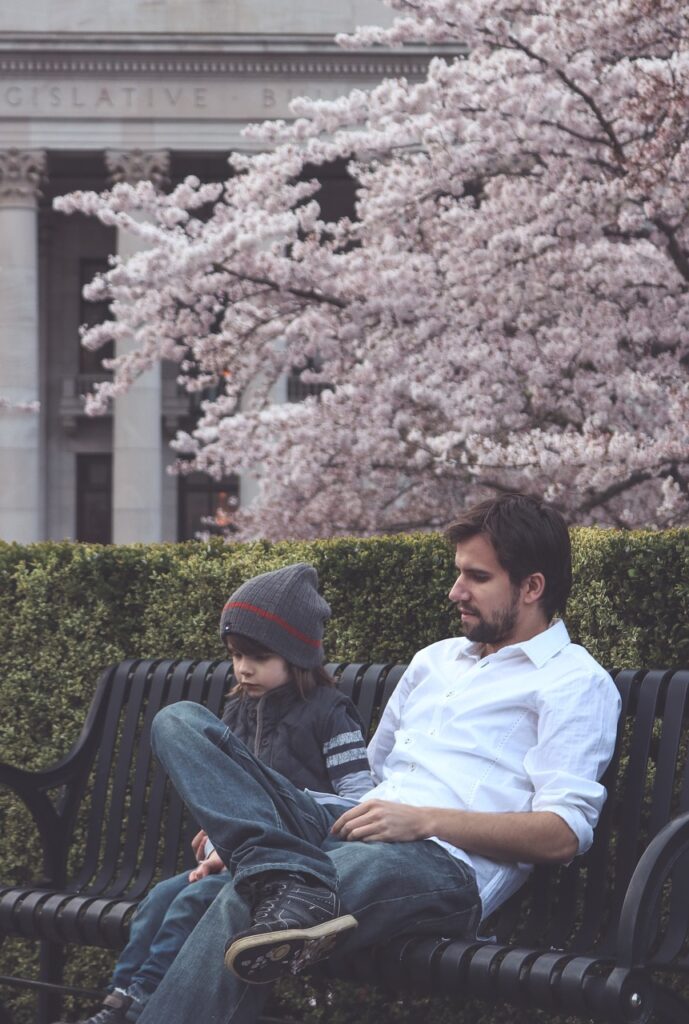Sometimes it feels like the world is coming apart at the seams. This has certainly been the case in recent weeks. From the wars between Israel and Hamas and Russia and Ukraine to a mass shooting in rural Maine, there is seemingly no end to the violence that makes its way onto our television screens, phones, and tablets. As a parent, you may be concerned about how these traumatic events could adversely affect your child’s emotional well-being and what you can say to ease the worry and anxiety. Before you start the conversation, here are a few things to keep in mind.
Consider your child’s age and maturity level
Younger children will likely be concerned about their safety and the safety of those around them. Your job is to assure them that they are safe and secure. You can limit their exposure by turning off the news when they’re around. Small children simply don’t understand the images of war and violence that might appear, and you should protect them from any shocking imagery and discussions.
A middle-school child will likely be more interested in obtaining the facts. In addition to ensuring they have accurate information, you can take the time to discuss the situation with them and answer any questions they might have.
Finally, high-school students are beginning to think critically about these issues, and they may need to talk through what they’re seeing and hearing. It’s best if they can have that discussion with a parent or caregiver.
Find out what your child already knows
This is important, especially because older children may be exposed to media coverage you’re not aware of, or they may be talking with teachers and friends. The conversation between you and your child will be more productive if you first determine what your child knows and listen to his or her point of view. Similarly, take some time to think about and reflect on your own political views and values so you’re prepared to respond to the situation accordingly.
Address false information and prejudice
It’s not uncommon for war and other violent acts to lead to cruel language and expressions of hate against a particular group of people. As a parent, you can correct any misinformation and help your child understand that it’s not right to make generalizations about a country, religion, or group. When a war breaks out, for instance, people tend to immediately take sides and maybe even demonize the side they’re not on.
This kind of behavior can lead to bullying and hate crimes. Some of your child’s friends and classmates could be negatively impacted. At the same time, you will want to address harmful stereotypes before your child develops prejudice against a group of people or country.
Focus on the helpers
If you watch enough news coverage, it’s easy to think that everyone in the world is bad. But that’s not the message you want to convey to your child. In truth, the number of good people far outnumbers the bad. Look for ways to demonstrate this to your child by sharing examples of people and organizations that are providing acts of kindness during times of war and violence. Focus on the rescue efforts, including medical professionals and government officials who are working to help people. Talk about specific examples of how people and refugees from war-torn countries are getting access to food, shelter, and medical help.
Look for opportunities for your child to get involved, if he or she expresses an interest. A good place to start is by volunteering for activities that lend support to military families or to victims of war and acts of violence closer to home. Your child may even want to donate to a cause that supports war refugees. In addition to helping, your child will get the added benefit of what it feels like to make an impact.
No one wants to talk about war and acts of violence. As a parent, your natural inclination is to protect your children from trauma. Keep in mind, however, that it’s nearly impossible to shelter your children from bad news as it unfolds. Be on the lookout for changes in behavior, and carve out the time to talk with them about the events at hand.
Image by Olya Adamovich from Pixabay
Dr. David Lowenstein is a Columbus, Ohio-based psychologist with more than 35 years of experience. He conducts individual, family, and group therapy sessions in his German Village office and also via telehealth. Dr. Lowenstein is also available for expert forensic testimony, and for educational workshops and presentations. He is frequently called upon as an expert source for print, radio, and broadcast media. Contact Dr. Lowenstein at Lowenstein & Associates, 691 South Fifth Street, Columbus, Ohio, 43206, or call 614.443.6155 or 614.444.0432.


